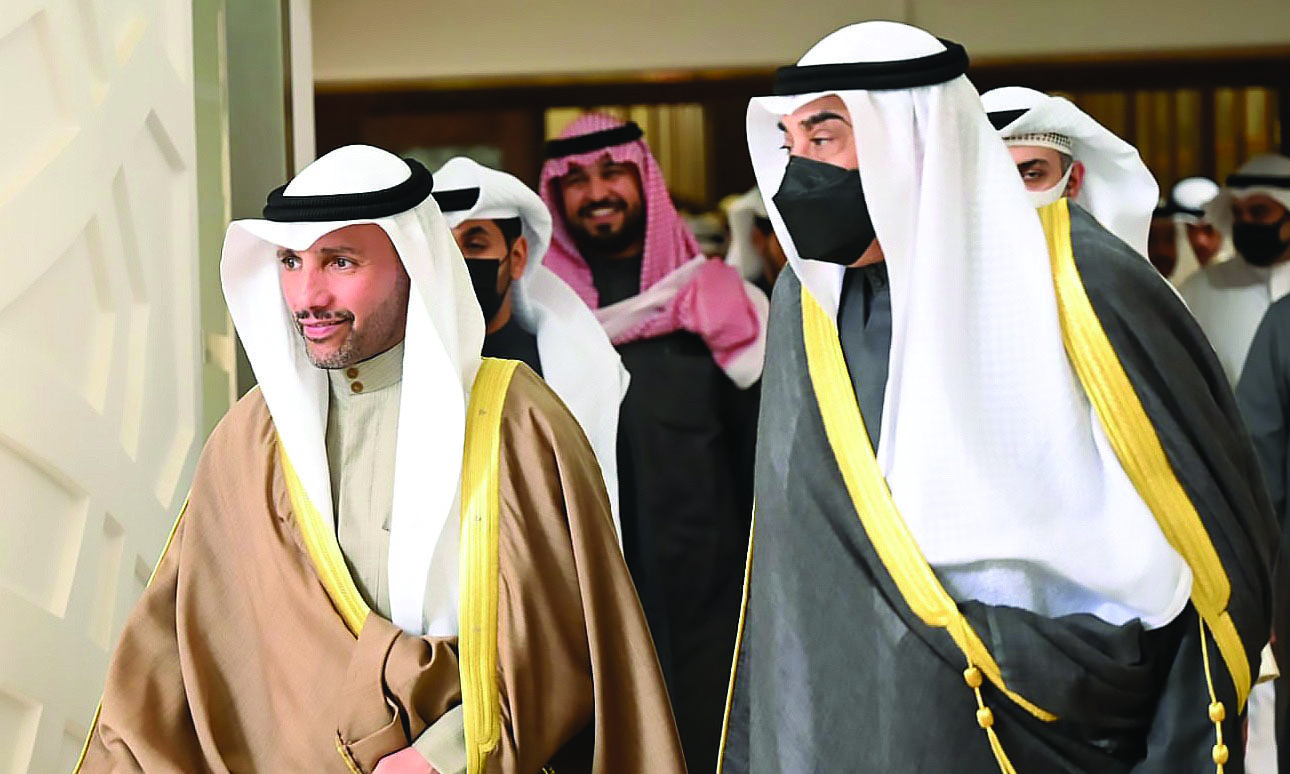By B Izzak
KUWAIT: HH the Amir Sheikh Nawaf Al-Ahmad Al-Jaber Al-Sabah yesterday urged lawmakers to avoid disputes amid the highly delicate international situation, saying Kuwait is not immune to the effects of the Russia-Ukraine military confrontation. In a message to lawmakers conveyed by National Assembly Speaker Marzouq Al-Ghanem during yesterday's emergency session, HH the Amir urged lawmakers to place Kuwait's national interests ahead of everything else and called on them to pay greater attention to safeguard Kuwait's security and political interests.
He also called on MPs to help solidify the internal front and avoid the use of constitutional tools in an excessive way. Ghanem read HH the Amir's message at the end of a special Assembly session to discuss the possible impacts of the Russian invasion of Ukraine on Kuwait and the region. The session was held behind closed doors at the request of the government.
At the end of the session, MPs submitted a set of recommendations to the government calling to stock a sufficient quantity of anti-radiation iodine pills to be given to the population in case of need. The lawmakers also urged the government to speed up the process of establishing a national committee for emergencies, crises and natural catastrophes. They also called on the government to use funds controlled by the Kuwait Investment Authority to invest in strategic food projects and develop national warehouses to stockpile food.
Ghanem said after the session that the prime minister and ministers explained the government's readiness for any emergency that may result from the war. HH the Prime Minister Sheikh Sabah Al-Khaled Al-Sabah told MPs ahead of the closed session that the government asked for the session to explain to lawmakers various possibilities and how to deal with them.
Finance Minister Abdulwahab Al-Rasheed said the ministry has formed three emergency teams to follow up the developments of the Ukraine crisis, one each at the ministry, KIA and the customs department. He said the teams will monitor the developments of the crisis and assess its direct and indirect impacts on the global and domestic economies and take appropriate decisions.



